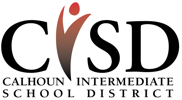Classrooms
Autistic Spectrum Disorder (ASD)
Classrooms for students with Autistic Spectrum Disorder (ASD) provide a low student/teacher ratio using a variety of instructional strategies such as TEACCH, Picture Exchange System and sensory-motor integration. Curriculum includes a continuum from Michigan Curriculum Framework to Michigan Model Curriculum for Supported Independence. Inclusion in general education classes is a part of the educational program when determined appropriate.
Adult Training Program (ATP)
This is a program for students ages 19-25 who have a mild to moderate cognitive impairment who require additional time to gain skills leading to enhanced independence and gainful employment. Placement of students within the program are based upon employment readiness skills. Students participate in the following:
- employability skills training
- learn to access community resources
- expand on daily living skills
- functional reading/math
- leisure and recreational skills
- learn self-advocacy skills
Cognitively Impaired (CI)
Moderately Impaired (MoCI)
Students receive instruction and are working toward independence in the following areas:
- self-care skills
- social skills
- daily living skills
- leisure skills, functional academic skills
- community-based instruction
- communication skills
Severely Impaired (SCI)
Students receive instruction and are working toward independence in the following areas:
- self-care skills
- social skills
- cognitive skills
- sensory needs
- mobility
- pre-vocational skills
- communication skills
Day Treatment (DAYTX)
This is a highly structured educational program for students with severe emotional impairment and mental health challenges. It is a placement option after other "least restrictive environments" options have been attempted and proven to be unsuccessful. The purpose of this program is to provide students with a safe and structural alternative placement in which to learn behaviors that are necessary to be successful in their regular school setting.
Severely Multiply Impaired (SXI)
Students receive instruction and are working toward independence in the following areas:
- mobility
- self-care skills
- social skills
- communication skills
